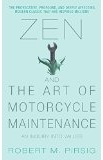Intellect 1
Intellectuals are people I have battled with all my life. When I hit bottom and zen began to emerge, what came with it was a confidence. The mind of intellect, academic mind, had been completely dominated by peer acceptance – despite the fact that I never was accepted. This accepted domination was based on fear – a fear of being alone. Once zen emerged I found aloneness to be a state to aspire to. Alone in my Chiswick loft bedsit I developed, alone in the Belgian village I developed, alone on the road (for a short time) I developed, from being afraid and lonely when I first went to London now being alone was a virtue. Now the zen mind said “I know”, and other Zen minds recognised this.
Intellects however had no such confidence. Knowledge they used was based on proof only, proof and concurrence. If intellectuals agree it must be right. This was the lonely place of academia I had come from. One word that describes this confidence is insight, that “I know” was insight. Insight is an anathema to intellect but there developed a problem in later life, how do Buddhist intellectuals rationalise insight? Buddhist intellectuals accept some version of the suttas (sutras), and whichever version they accept contains the word “insight”. For me this became clear with maths. You would think that maths was purely rational, but in maths there is a clear role for insight. Consider problem-solving. When you look at a solution you see clearly argued logical steps – no insight? When you look at students’ books you see clearly argued steps. Buy as every maths teacher knows, those students are unable to start. The traditional teaching method of “here’s one example, do 10” recognises the dilemma, students can copy but what they cannot do is start. This start requires that they study the problem, and then come up with the start for themselves – this problem-start is an insight and students cannot find it in general. Finding this starting insight is what makes a mathematician, not the logic that develops the problem – any computer can do that. The home of the intellect requires insight, the language of science requires insight.
For me insight became a badge of honour, I probably clung to it too much and caused conflict. It is the art of the Arts Centre people, their creativity flowed from their insight, my writing flowed from my insight, and my insight flowed from or is my zen.
I see much intellect in Phaedrus, and if that is what he clung to so defiantly then insanity had to follow. Like a little boy I clung to academia, it gave me a modicum of success. My meaning became that of academia so when I left into the world of work where that academia was almost ridiculed I was left with clinging to meaninglessness. Whilst in academia there was no threat, in the real world my feebleness that was so dominated by intellect became vulnerable, and with that vulnerability zen could emerge.
The fascinating question that only the Buddha can answer, why does zen not emerge in many more people as this type of personal history is so common?





